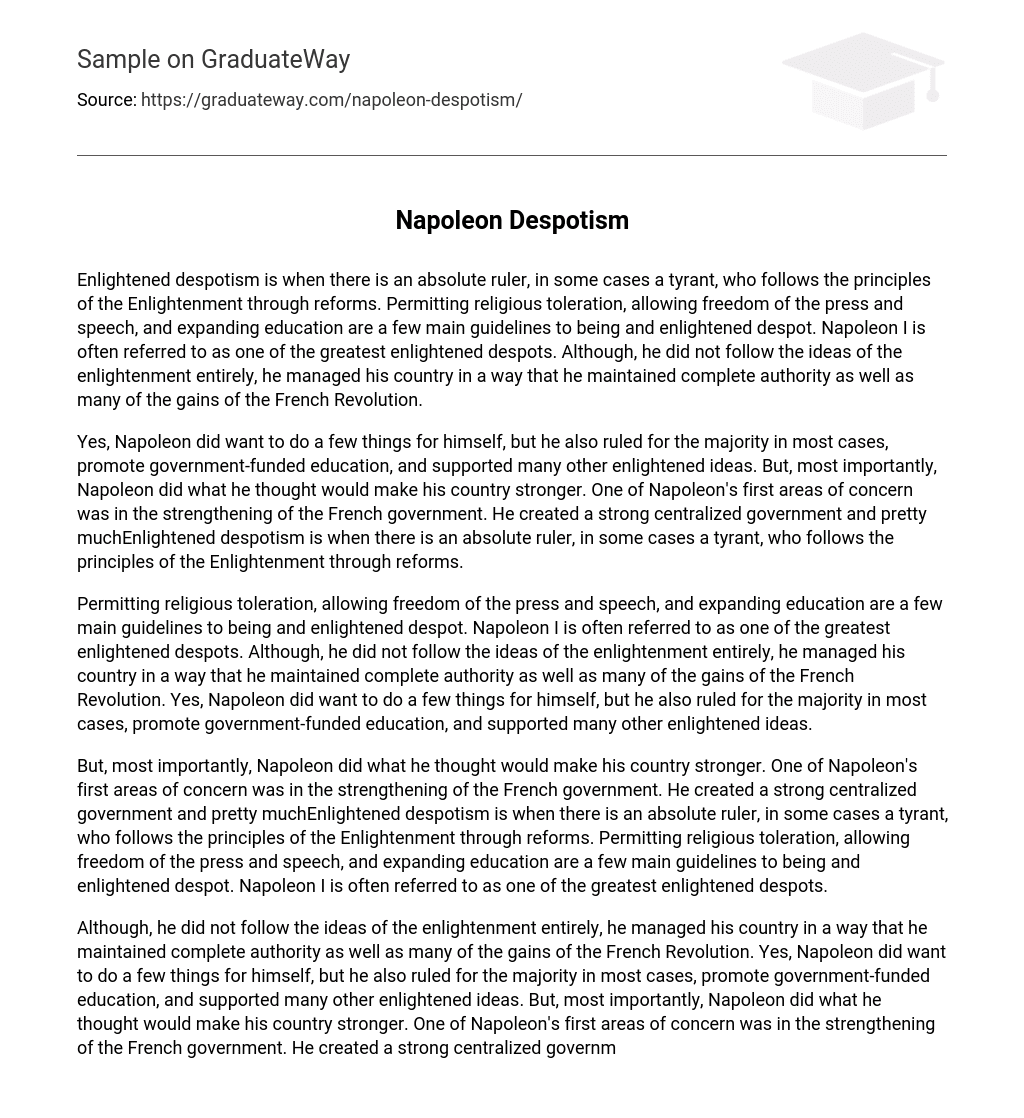Enlightened despotism refers to a form of government where an absolute ruler, often considered a tyrant, implements reforms in line with the principles of the Enlightenment. Key aspects of being an enlightened despot include granting religious toleration, allowing freedom of the press and speech, and promoting education. Napoleon I is frequently acknowledged as one of the most notable enlightened despots, despite not fully adhering to Enlightenment ideals. He effectively governed his country while retaining absolute authority and upholding many achievements of the French Revolution.
Yes, Napoleon did have personal ambitions, but he also prioritized the welfare of the majority and advocated for government-funded education and other enlightened concepts. Above all, Napoleon’s actions were driven by his desire to strengthen his country. One of his initial priorities was to fortify the French government, resulting in the establishment of a robust centralized system. Essentially, enlightened despotism involves an absolute ruler, often a tyrant, who implements Enlightenment principles through reforms.
Permitting religious toleration, freedom of the press and speech, and expanding education are key principles of being an enlightened despot. Napoleon I, often hailed as one of the greatest enlightened despots, did not strictly adhere to enlightenment ideals. Nevertheless, he governed his country in a manner that allowed him to retain absolute authority while preserving many of the achievements of the French Revolution. While Napoleon did prioritize his own interests at times, he generally ruled for the benefit of the majority, advocating for government-funded education and endorsing various other enlightened concepts.
But, most importantly, Napoleon did what he believed would enhance the strength of his country. One of his initial concerns was to bolster the French government. He established a robust centralized government and essentially embraced enlightened despotism, which entails the rule of an absolute leader who adheres to Enlightenment principles through reforms. Some key tenets of being an enlightened despot include allowing religious tolerance, freedom of the press and speech, and promoting education. Napoleon I is frequently regarded as one of the most prominent enlightened despots.
Despite not fully adhering to Enlightenment ideals, Napoleon exerted complete authority over his country while preserving many of the achievements of the French Revolution. Although he pursued personal interests, he also governed with the majority in mind, advocating for government-funded education and endorsing other enlightened concepts. Above all, Napoleon prioritized actions he believed would bolster his nation’s strength. One of his initial focuses was on strengthening the French government, which involved establishing a robust centralized system.





